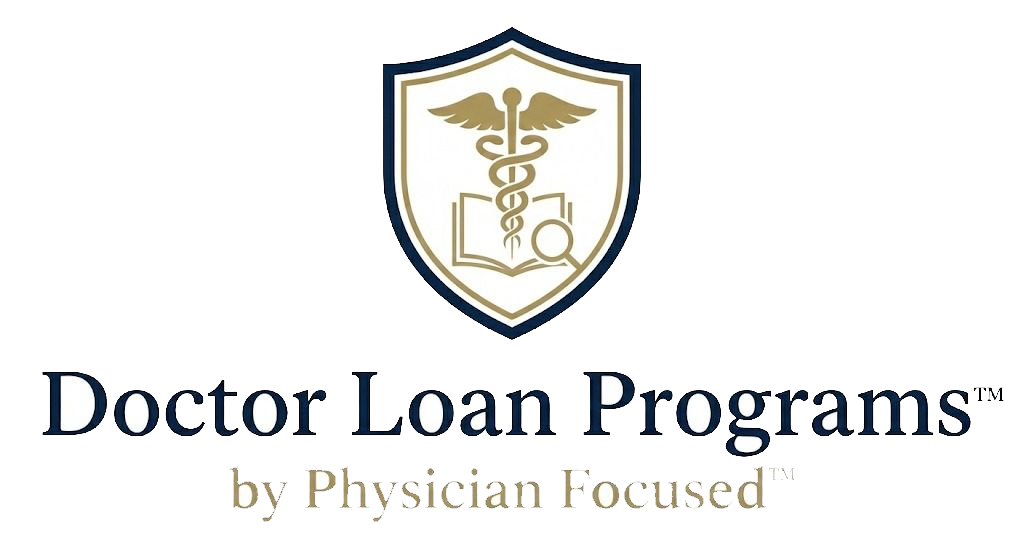With the unique financial circumstances you face as a physician, home loan programs tailored specifically for doctors can offer significant advantages. These programs take into account your student debt, high earning potential, and professional stability, providing more favorable terms than traditional mortgages. Understanding how these specialized loans work can empower you to make informed decisions about homeownership, ultimately supporting your personal and financial goals.
The Unique Financial Landscape of Medical Professionals
Your journey as a medical professional comes with a distinct financial landscape shaped by high educational debt and fluctuating income levels. While you may have the potential for lucrative earnings post-residency, the financial strain during your training can create significant barriers in accessing valuable resources, especially in securing a home loan. Understanding these unique challenges is vital for navigating your financial future.
Navigating High Debt and Low Income during Residency
The Challenge of Traditional Mortgage Criteria

Tailored Solutions: What Physician Home Loan Programs Offer
Physician home loan programs provide tailored solutions that accommodate the specific financial situations of medical professionals. These programs often feature flexible qualifying standards, such as considering future income and allowing for lower credit scores. Many lenders offer options that exclude Private Mortgage Insurance (PMI), enabling you to preserve your income for other expenses. Additionally, repayment terms can be customized to reflect your unique career trajectory, ensuring that you can invest in your home without compromising your financial stability.
Special Considerations for Med School Graduates
Med school graduates face unique challenges, including considerable student debt and delayed earning potential. Physician home loan programs recognize these factors by offering loans designed specifically for recent graduates, often without requiring a lengthy work history or high salaries. These loans support your transition into homeownership while you’re still building your career, allowing you to establish roots without overwhelming financial burdens.
Benefits of Low Down Payment Options
Low down payment options are a significant advantage of physician home loan programs. Many lenders allow you to secure a home with as little as 0% to 5% down, which can be particularly beneficial for new physicians still managing student loans. This flexibility allows for a quicker entry into homeownership and helps you retain cash flow for imperative expenses like equipment, moving costs, and settling into your new role. Low down payment options also enable you to divert funds toward investments or savings, which can pay off in the long run.
Choosing a low down payment option can greatly enhance your financial strategy as a new physician. By investing less upfront, you maintain liquidity, which is crucial during the initial years of your practice. For instance, if you opt for a 5% down payment on a $500,000 home, you save an immediate $25,000 compared to traditional loans requiring 20% down. This allows you to allocate that savings toward professional development, family needs, or emergency funds, creating a holistic approach to your finances as you initiate on your medical career.
The Psychological Advantage: Home Ownership for Doctors
Owning a home delivers significant psychological benefits, particularly for doctors navigating their demanding careers. As you transition from residency to a stable practice, having a space to call your own fosters a sense of empowerment and accomplishment. It reinforces personal stability and can mitigate feelings of isolation often experienced in the early stages of professional life. The security of home ownership acts as a foundation, allowing you to focus more on your practice and career growth while also providing a sanctuary away from the pressures of your medical responsibilities.
Building Stability Against Career Uncertainty
Home ownership serves as a buffer against the uncertainties of a medical career, providing you with a stable environment amidst the volatility of job opportunities and relocations. As you may face various transitions, such as changes in employment or shifts in demand for particular specialties, having a permanent address can alleviate some of the stress that accompanies these fluctuations. This stability enables you to cultivate a sense of community, establishing roots that can foster both personal and professional support networks.
The Impact of Home Ownership on Personal Wellbeing
Home ownership significantly enhances your overall wellbeing, providing emotional and mental benefits that extend beyond physical space. A home allows you to create a personalized environment that can reflect your values and lifestyle, offering a retreat from the rigors of your medical practice. Studies show that homeowners experience lower levels of stress and anxiety, contributing to improved work-life balance and fostering a more fulfilling personal life.
Research indicates that homeowners are generally happier compared to renters, with many citing their home as a source of pride and security. The act of decorating, gardening, or even simply personalizing your space can lead to increased satisfaction and a profound sense of accomplishment. Moreover, the stability associated with home ownership encourages long-term planning and investment in personal relationships, fostering connections that enhance both your social support system and professional network. These psychological advantages go beyond mere bricks and mortar, instilling a sense of belonging and stability that promotes a healthy work-life integration.
Shortcomings of Conventional Loan Products for Physicians
Conventional loan products often fail to accommodate the unique financial situations faced by physicians. These loans typically require lengthy employment histories, high credit scores, and substantial down payments, which can be challenging for you as a new graduate or resident. The high levels of student debt common among medical professionals further complicate approval processes. This disconnect between traditional lending criteria and your financial profile can hinder your ability to secure a mortgage that meets your needs.
Understanding the Discrepancies in Risk Assessment
Conventional lenders often assess risk based on standard income profiles, overlooking the fact that your earning potential significantly increases after residency. These lenders may regard you as a higher risk due to your student debt and limited credit history, despite your future earning capacity. Your situation requires a more nuanced approach that conventional loans typically do not provide, leading to a disconnect in the ability to secure favorable loan terms.
Consequences of Not Leveraging Specialized Programs
Opting for conventional loans instead of specialized programs can significantly impact your financial future. You might encounter higher interest rates, larger down payment requirements, or even disqualification from obtaining a mortgage, which could delay your homeownership plans. This financial strain could also lead to longer-term implications such as loss of equity and increased monthly payments, ultimately diminishing your investment potential in real estate.
The ramifications of not utilizing specialized programs become evident when you consider the long-term costs. Higher interest rates in conventional loans can result in thousands of dollars lost over the life of a mortgage. Additionally, larger down payments required by traditional lenders may deplete your savings, inhibiting your ability to invest elsewhere or address unforeseen expenses. Specially designed physician loan programs, by contrast, can offer zero or low down payment options, favorable interest rates, and tailored repayment terms that align with your unique financial situation, allowing you to build equity while maintaining financial stability.
How to Choose the Right Physician Home Loan Program
Selecting the right physician home loan program involves evaluating key features to ensure it meets your financial needs and residency status. Consider not only interest rates but also loan terms, down payment requirements, and any special benefits unique to medical professionals.
Key Features to Evaluate
Focus on these necessary features when comparing programs:
- Interest rates and fees
- Down payment options
- Loan-to-value ratio
- Flexible credit score requirements
- Forgiveness options for specific loans
- Ability to finance closing costs
- Availability of adjustable-rate mortgages
Perceiving the implications of each feature will guide you in making an informed choice that aligns with your financial strategy.
Expert Tips for First-Time Home Buyers in Medicine
- Understand your budget and stick to it
- Research multiple lenders for competitive rates
- Consult with real estate professionals experienced in physician loans
- Consider your future career mobility
- Get pre-approved to strengthen your buying position
Any proactive approach in these areas boosts your confidence and readiness as you proceed with your purchase.
As you examine deeper into the specifics of home loans, remember that thorough research is key. Engage with multiple programs and familiarize yourself with each provider’s unique terms and advantages.
- Attend informational sessions or webinars related to physician home loans
- Join forums for medical professionals discussing home buying experiences
- Reflect on your long-term goals, such as location and job security
- Consult financial advisors for tailored advice
Any informed decision will enhance your confidence and ease in acquiring your new home.
Final Words
With these considerations, it’s clear that physician home loan programs are tailored specifically for you as a medical professional. They recognize the unique financial challenges you face, such as student debt and fluctuating income, offering flexible qualification criteria and low down payment options. These loans empower you to invest in your future, allowing you to purchase a home without the typical barriers. By simplifying the process and accommodating your needs, these programs ensure you can focus more on your career and personal life while benefiting from homeownership.




